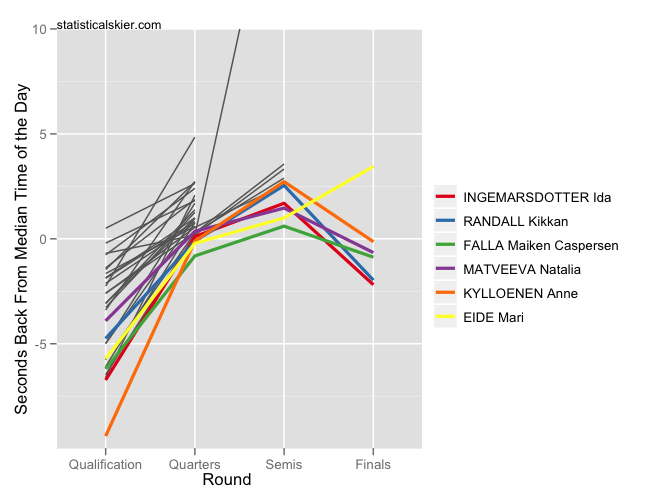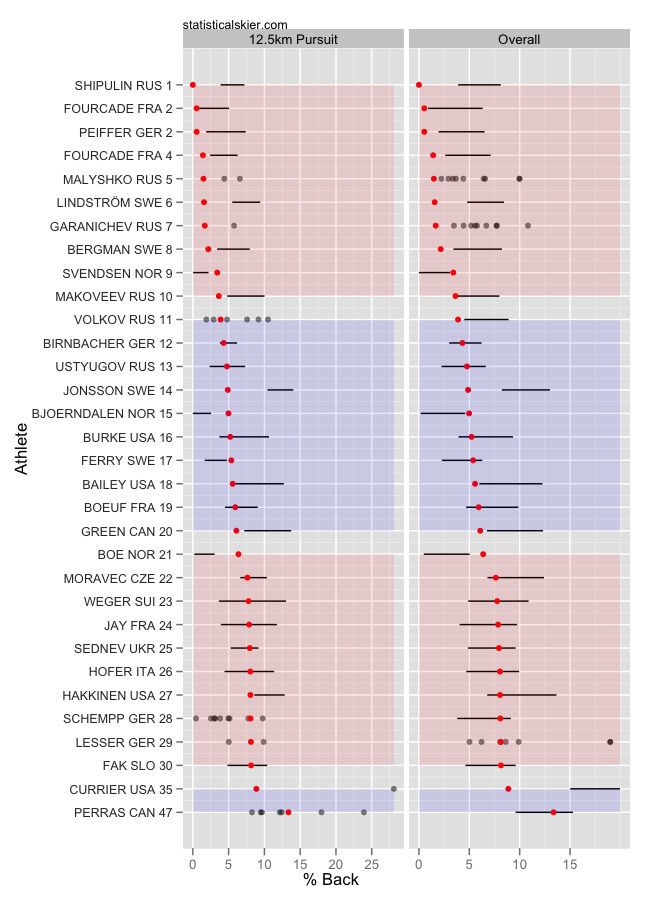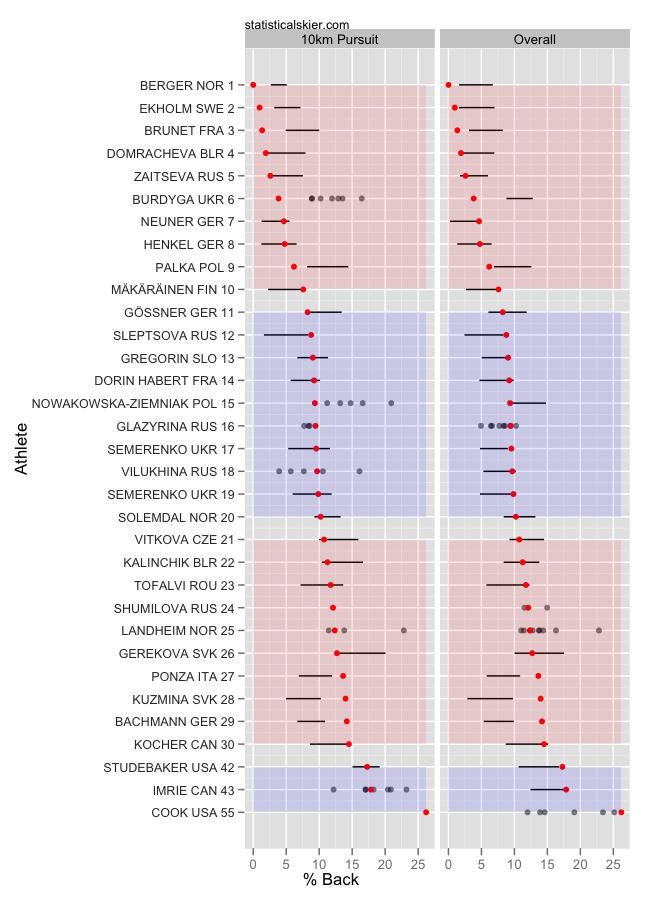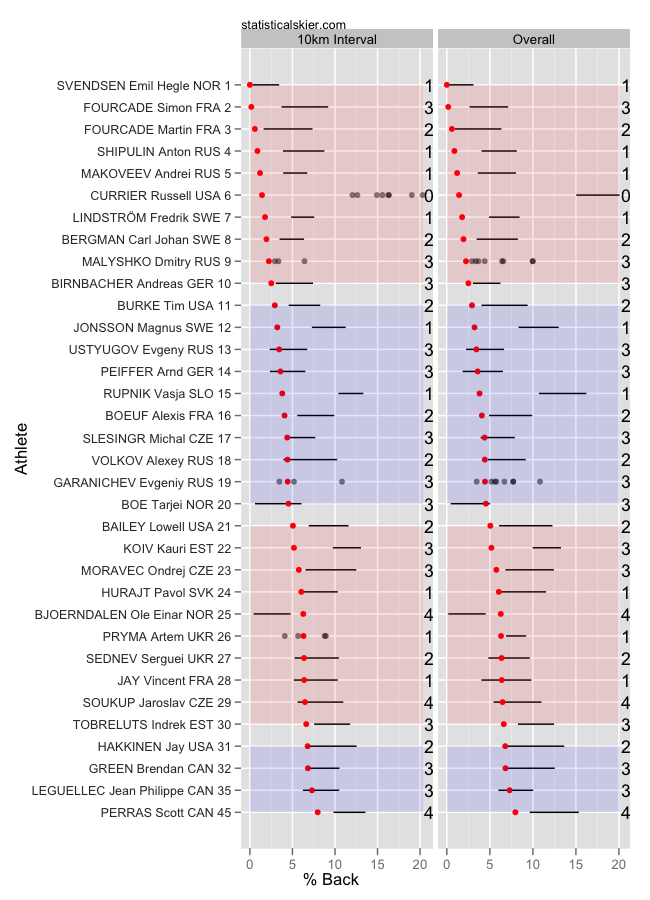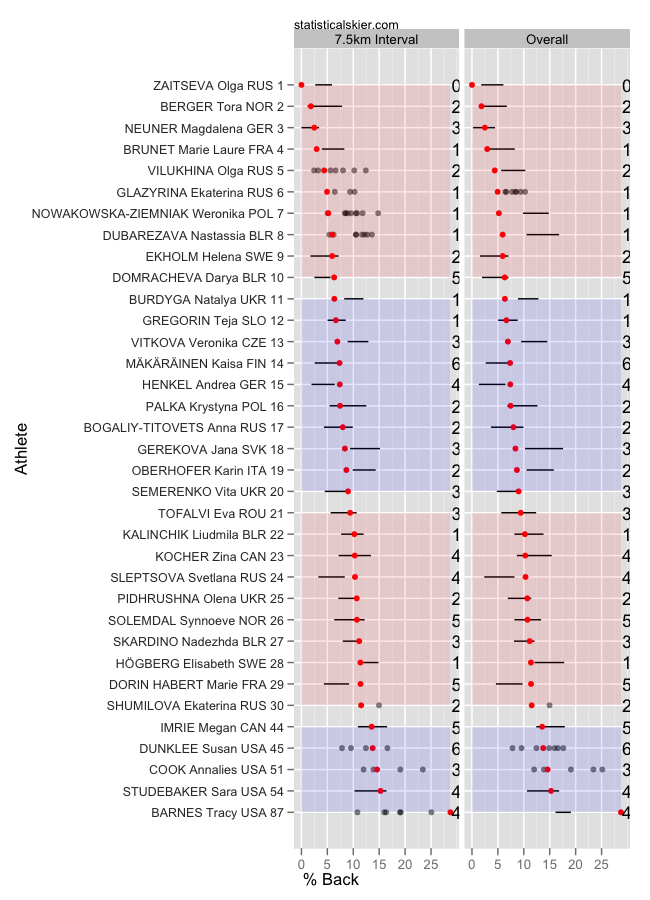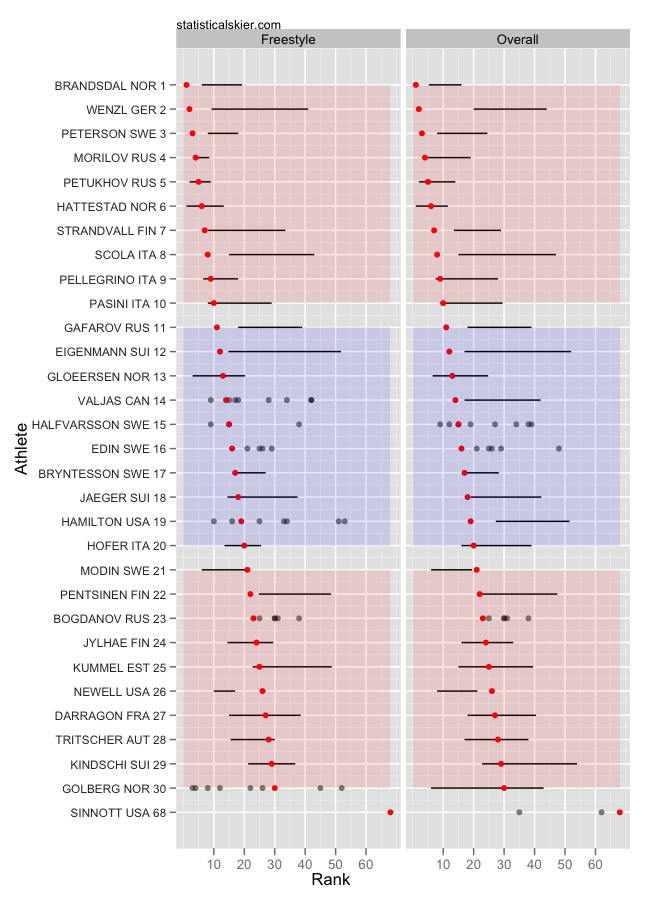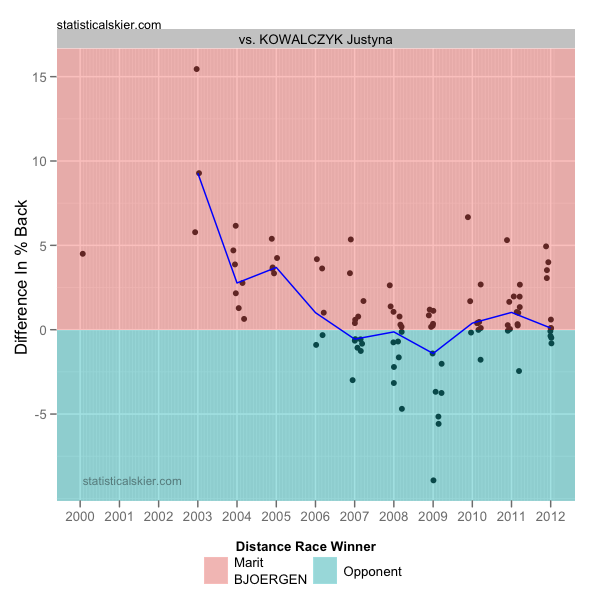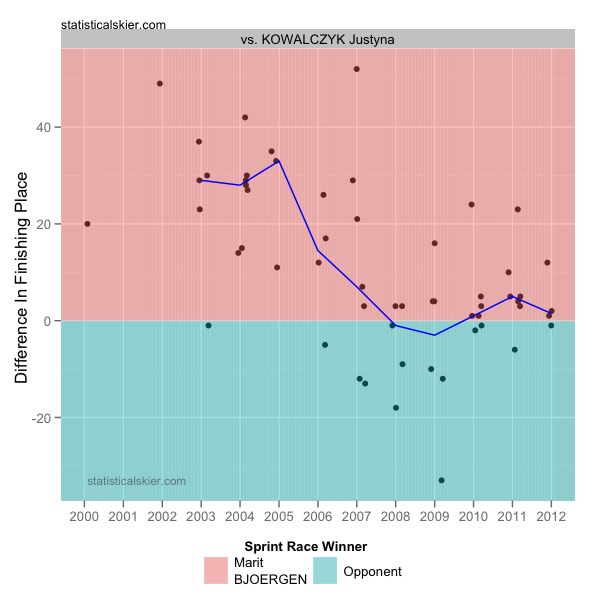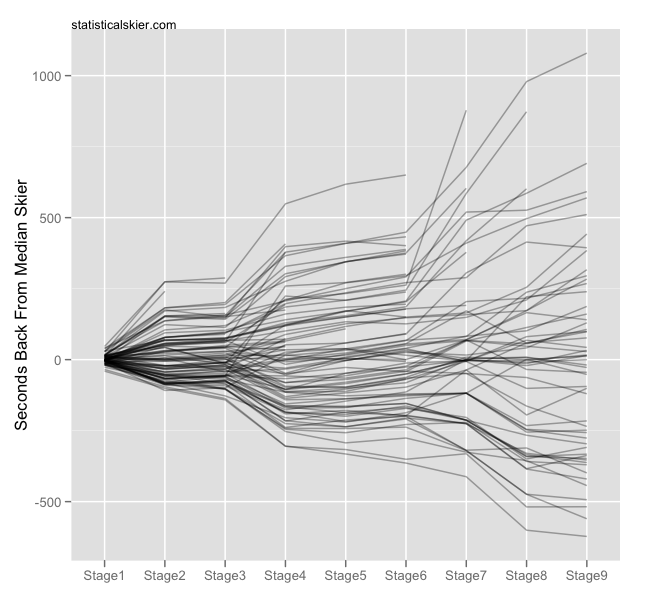As with most stage races these days, the Tour de Ski included some handicap start pursuits. Generally, the athletes will start in a staggered fashion based upon their time back in the overall standings, and the first person to the finish line wins the stage.
This creates some very unusual incentives for the athletes, depending on where they are in the overall standings. Many of the athletes are no longer really racing against each other, only those skiers who happen to be near them in the overall standings. For example, there’s no really sense in which Therese Johaug was racing against Liz Stephen in Thursday’s pursuit. Johaug only really cared about maintaining the gap behind her and trying to catch the leaders.
This means that isolating the times for just that stage is an almost useless way to gauge performance. Johaug, for instance, skied that stage around 15 seconds slower than Stephen, but we probably don’t think that that means much about Stephens’ ability compared to Johaug’s.
So I wonder about these things when I read stuff like this, or this, talking about how well Stephen and Freeman skied in the pursuit based on their times for just that stage. By my calculations, Freeman had the 11th fastest time of the day and Stephen the 13th. But that alone doesn’t mean much to me, since many other skiers were really only racing against the skiers near them, rather than the whole field.
If an athlete says they had a good day, of course, I’m inclined to believe them. They alone know how their body felt and whether it was a good effort. But, you know, I like to measure stuff, so let’s try.
Let’s compare Freeman and Stephen only to those skiers who started near them in the pursuit. Specifically, how did Freeman and Stephen’s times for the day compare to their historical performances against these skiers? Better than average? Worse? About the same?
Here’s the relevant graph for Freeman: Continue reading ›
Tagged handicap, kris freeman, liz stephen, pursuit, tour de ski, World Cup
